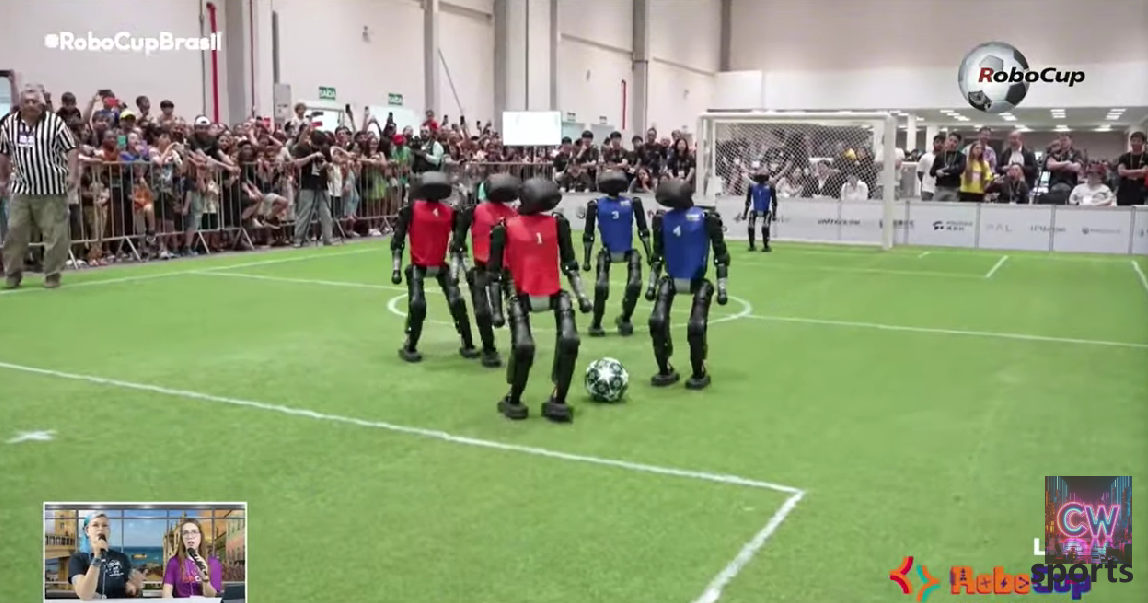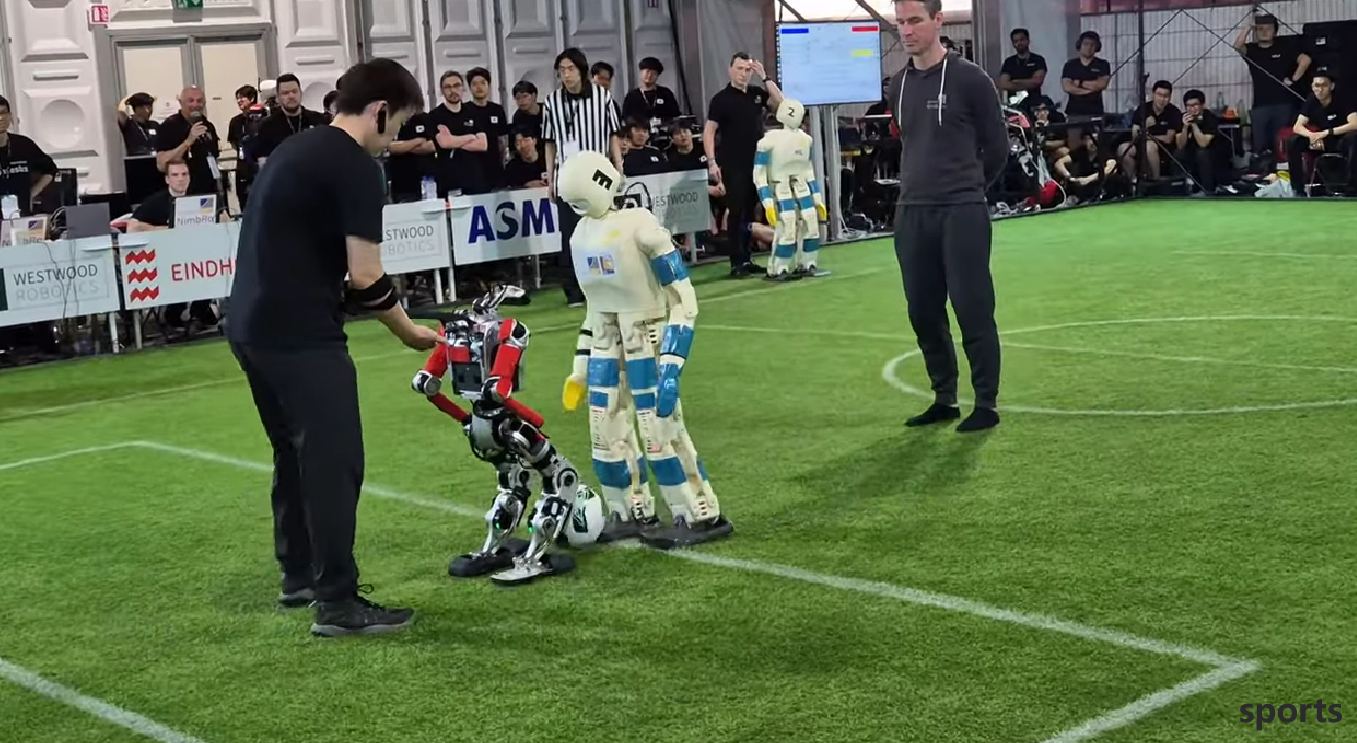For the first time in history! Two Chinese football teams won the World Cup championship and runner-up in Brazil
On July 20th local time, Brazil's El Salvador International Convention and Exhibition Center was crowded with people, and a final called the "Robot Football World Cup" was staged here. What surprised the audience and the media was that this final became a "civil war" between the two Chinese teams. ▲"Human-like human-level" final scene In the end, Tsinghua University Vulcan team defeated China Agricultural University Shanhai team with a score of 5:2 to win the championship. This is the first time that the Chinese team has won the gold medal in the humanoid group with the highest value in 28 years since the launch of the "RoboCup", breaking through the monopoly of strong European and American teams. On the road to promotion, the Chinese team performed well, almost sweeping over traditional global teams with an overwhelming advantage. Among them, Tsinghua University Vulcan team "blocked" their opponents many times with big scores of 16:0, 9:0 and 12:0. It is reported that Tsinghua University Vulcan team and China Agricultural University Shanhai team both used accelerated evolution T1 robots in this final, which integrates advanced hardware design and AI strategies and has excellent motion control and visual perception capabilities. In the final of the "Humanoid Children's Level", another robot team sent by Tsinghua University, TH-MOS, lost to the German team "Leipzig University Enhanced" that has dominated for many years in the final, and unfortunately won the runner-up. In addition, in the adult-level "Improvised Challenge", the Shanhai Team of China Agricultural University laughed to the end and won the first place in the project. Unlike sending the entire team to participate, the rule of "Improvised Challenge" is that each game has different unfamiliar teams that randomly combine teams to participate, which further tests the individual robot's ability to adapt to decision-making and team collaboration. Shanhai Team has also won praise from international technology media for showing its powerful ability in multi-agent collaboration and real-time decision-making in the "Improvised Challenge". ▲Trainers supervise robot training competition According to the official website of the organizer "RoboCup's "Human-like Composition Level" competition adopts a completely autonomous AI-driven model, requiring the robot to be between 1 meter and 2 meters long. The robot does not require human intervention and relies on visual perception, real-time decision-making, motion control and multi-agent collaboration to complete the competition. The game is in 3v3 format (3 robots per team), using FIFA standard No. 5 ball, the field is smaller than the real football field, but the robot is required to have dynamic walking, kicking, balancing and team cooperation capabilities. The "humanoid-like children's level" uses the FIFA standard No. 1 ball, requiring the robot to be between 0.4 meters and 1 meter. According to the official website, RoboCup has an ultimate goal - in 2050, the football team composed of bionic robots will defeat the world champion team of humans under the FIFA (FIFA) rules. This goal is undoubtedly very challenging. However, Cheng Hao, founder and chairman of Accelerating Evolution Company, told the media that in the next 5 to 10 years, robots are likely to reach the level of ordinary human professional players. As we all know, football is a very complex team sport, and RoboCup's purpose is to promote comprehensive progress in hardware and software in various countries through robot football matches. At present, the gap between robots and human players is still quite significant. First of all, the most basic task of a robot is to achieve form perception, that is, to identify the relative positions of football, goal and players on the field at any time. Then in terms of exercise ability, the robot is still very weak in joint flexibility, body balance ability and explosion speed, which puts higher requirements on battery life and the research and development of bionic materials. At a higher level, elite human players have cultivated their decision-making ability to deal with complex situations through thousands of hours of training accumulation. Robots must achieve corresponding levels through perfect AI strategies and massive data input. Currently, researchers in the robot football community generally believe that robots are still very far away from reaching the level of human elites, but in the short term, robots may still try to get close to human levels in some sub-tasks (such as penalty kicks and short-distance sprints). Red Star News reporter Zheng Zhi comprehensive CCTV News and People's Daily reports

- Recent Posts
-
- Each Sport: Pena urges Barcelo
- Tierney: It s hard to say good
- European Cup group ranking upd
- Pharmaceutical factory launche
- Barcelona is glad to let him g
- Official: Fenerbahce signs Ben
- Thursday 001 Club World Cup Ju
- Miami International s three-ye
- At Juventus and Manchester Cit
- Real Madrid promises: If the C
- Hot Posts
-
- Club World Cup Winning Predict
- Another upset! Swedish star Mo
- [Today s Event] 3-string 1: Ma
- Upset! Real Madrid draws again
- The empty goal failed! The Chi
- Real Madrid has made great cha
- Barcelona Lamacia scored a goa
- Unwilling to give up! De Bruyn
- Manchester United has a new mi
- Master level! The 17-year-old
- 92 minutes of the game! The pl
- The Club World Cup was also di
- Alonso s intervention and inte
- 40-year-old Cazorla: Before re
- Chelsea faces the trouble of c
- Foden took Burberry s hard pho
- Italian media: Arnau & Cor
- The number of successful playe
- Both relegated! Bochum & K
- Donnarumma suggests that Paris
- search
-
- Links
-
